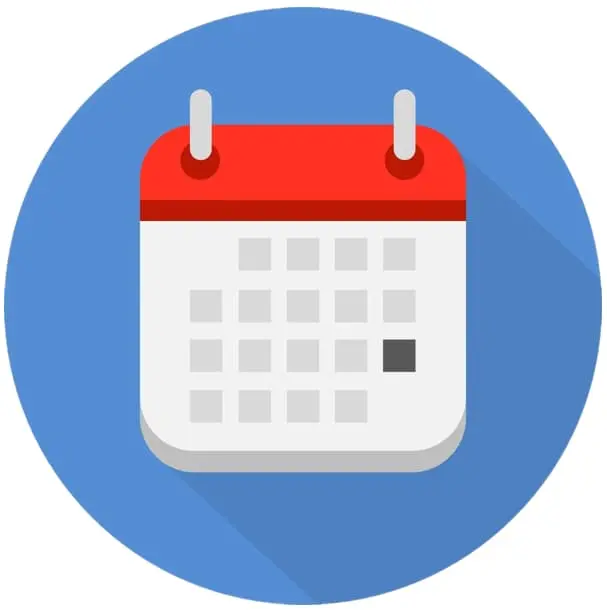What Are The Side Effects Of Fexofenadine?
.webp)
Content by

Last Updated
Buy Fexofenadine Today From £8.75
Next day delivery from our UK pharmacy
Table of Contents
- Fexofenadine hydrochloride uses
- Does fexofenadine cause side effects?
- Long term side effects of fexofenadine
- Fexofenadine side effects of the heart
- Do fexofenadine side effects go away?
- How long does fexofenadine stay in your system?
- Does fexofenadine affect sleep?
- Does fexofenadine cause anxiety?
- Fexofenadine and alcohol
- Does fexofenadine make you drowsy?
- The verdict
Fexofenadine hydrochloride uses
Fexofenadine hydrochloride is an antihistamine, commonly used to relieve symptoms associated with allergies and hay fever, such as sneezing, runny nose, itchy eyes, watery eyes, and congestion. It can also be used to help relieve itching caused by hives. Fexofenadine tablets are available over the counter (120mg) and on prescription (180mg).
Fexofenadine works by blocking the action of histamine, a chemical released by the body during an allergic reaction, that can cause symptoms of allergy. By blocking the action of histamine, fexofenadine hydrochloride can provide relief from these symptoms without causing drowsiness or other side effects normally associated with older antihistamines.
In addition to treating hay fever and allergy symptoms, fexofenadine can also be used to treat chronic urticaria (itching for longer than 6 weeks), and itchy skin caused by eczema.
Does fexofenadine cause side effects?
Fexofenadine tablets are usually well tolerated with few side effects or allergic reactions reported. The most common side effect is mild drowsiness, which usually subsides after a few days as your body adjusts to its effects. Less common side effects can include dry mouth; stomach upset; dizziness; headache; fatigue; muscle aches or pain; unusual taste sensation; blurred vision; constipation or diarrhoea. It’s important to talk to your doctor or pharmacist if you experience any unusual side effects.
Long term side effects of fexofenadine
Long term side effects of fexofenadine have not been reported, and it is unlikely to cause any problems if you use treatment on a long-term basis.
If you have kidney disease, you should speak to your doctor or pharmacist about a dose adjustment, as drug levels may be raised. A lower dose is not usually required for those with liver disease.
Fexofenadine may also interact with other medications, particularly certain antivirals. They can increase the chances of experiencing side effects.
Overall fexofenadine has a very good safety profile, but it is still important to let your doctor or pharmacist know if you are taking other medicines. You should always stick to the prescribed dose.
Fexofenadine side effects of the heart
Fexofenadine is generally considered to be safe for those with heart problems. However, there have been reports of an increased heart rate. The product information leaflet suggests that those with heart problems should speak to their doctor, or a specialist cardiac healthcare professional.
Do fexofenadine side effects go away?
Most fexofenadine side effects are mild and temporary and generally do not require medical attention. Most fexofenadine side effects will resolve on their own within a few days, although some may take longer to go away. Common fexofenadine side effects, such as drowsiness, dry mouth, headache, stomach upset, dizziness, anxiety and insomnia can all be reduced or eliminated by lowering the dose or stopping treatment altogether.
In most cases, the side effects associated with taking fexofenadine are mild, and will not require medical attention. However, if your side effects do not go away, or they appear to be serious, including but not limited to trouble breathing, swelling of the face, throat, or lips, you should seek emergency medical help. These are signs of an allergic reaction.
How long does fexofenadine stay in your system?
Fexofenadine stays in your system for up to 12 hours after you take it; however, this can vary based on individual factors such as age, body weight, metabolism, and the dose.
Taking fexofenadine at a higher dose than what is recommended, or certain medical conditions such as kidney disease, can slow the breakdown process, reducing its elimination from your body. This can increase the chances of experiencing unwanted effects. Always stick to the recommended dose and do not double dose, even if you have forgotten to take your previous tablet.
Does fexofenadine affect sleep?
Studies have shown that fexofenadine has no effect on sleep.
Does fexofenadine cause anxiety?
There is no concrete evidence that fexofenadine causes anxiety; however, there are some anecdotal reports from people who have taken the medication and experienced increased levels of anxiety. If you are experiencing any adverse effects after taking fexofenadine, it is always best to speak to your doctor about them. They may be able to recommend an alternative.
Fexofenadine and alcohol
While fexofenadine itself does not typically cause drowsiness and sedation, adding alcohol to the mix can increase the chances of experiencing such effects. The drowsiness caused by fexofenadine in combination with alcohol has the potential to impair driving skills and reaction times, making it unsafe for those who to operate a vehicle, or engage in any other activity requiring full awareness.
In addition, fexofenadine can interact negatively with alcohol by decreasing its effectiveness and reducing its absorption rate in the body. This means that taking fexofenadine while drinking could result in less relief from allergy symptoms since the body may not be able to properly process fexofenadine's active ingredients. If you suffer from allergies and plan on consuming alcohol, make sure you wait at least 4 hours after your last dose of fexofenadine before drinking any alcoholic beverages.
Alcohol can also intensify side effects such as dizziness, headache, and nausea. Mixing fexofenadine with alcohol can also lead to an increased risk of liver damage so people who have existing liver problems should be especially cautious when combining the two substances.
Other drinks that should be avoided include grapefruit juice, orange juice and apple juice. They reduce the body's ability to be able to absorb fexofenadine, reducing its effectiveness and increasing the chances of side effects.
Does fexofenadine make you drowsy?
Fexofenadine is generally considered safe to take during the day and is classified as a non-drowsy antihistamine. However, it does penetrate the blood brain barrier (albeit to a lesser extent), so some people may experience drowsiness. It is best to monitor your own response to treatment.
The verdict
Fexofenadine is generally considered to be a safe drug. This is why it has been licensed as an over-the-counter treatment. Most people will not experience any adverse effects, however, as with all medication, they are possible. Drowsiness is the most common side effect, although it will not affect most people. If you are taking other medication, you should check with your doctor or pharmacist for possible drug interactions.
Whilst all of our content is written and reviewed by healthcare professionals, it is not intended to be substituted for or used as medical advice. If you have any questions or concerns about your health, please speak to your doctor.
